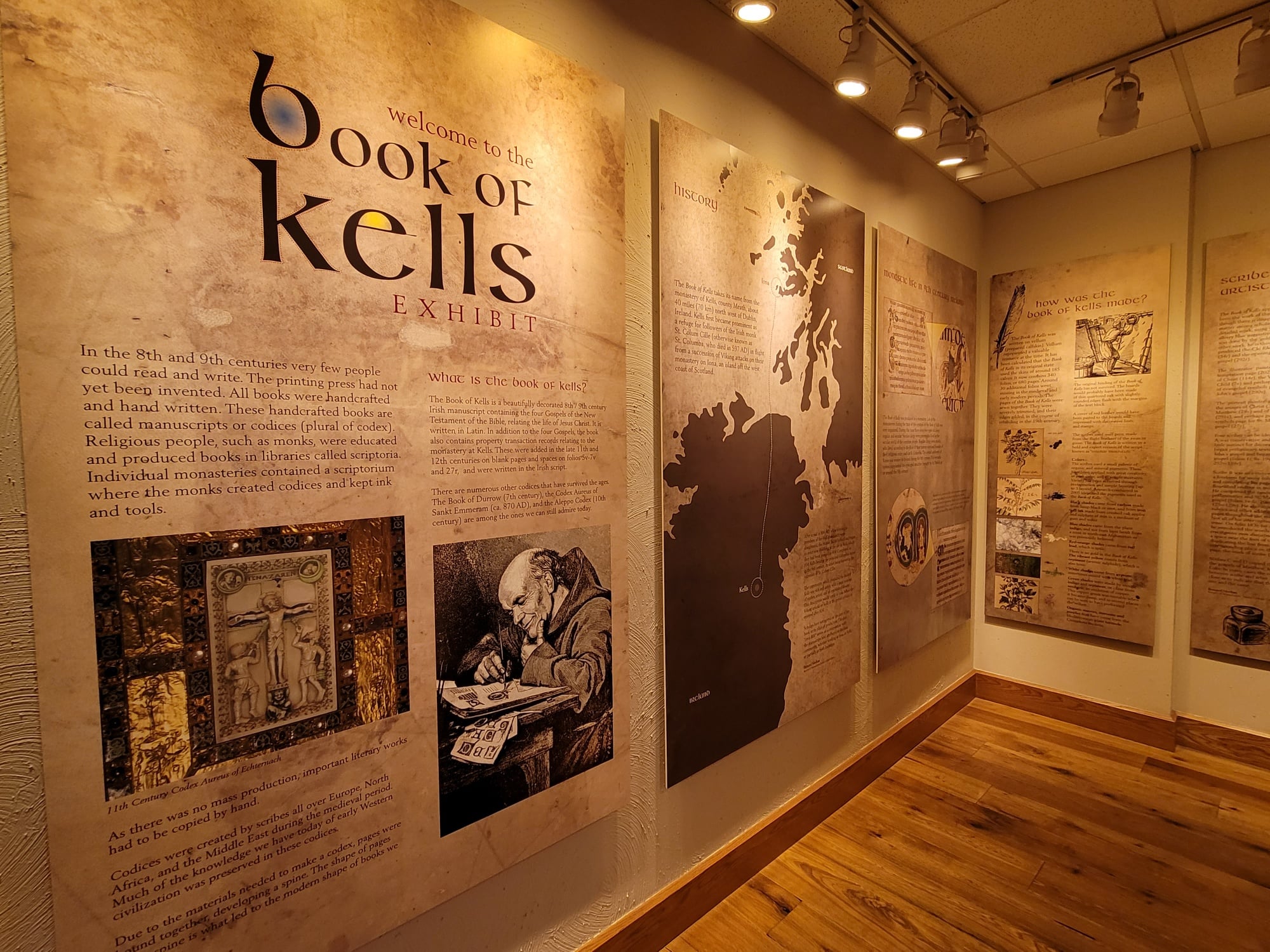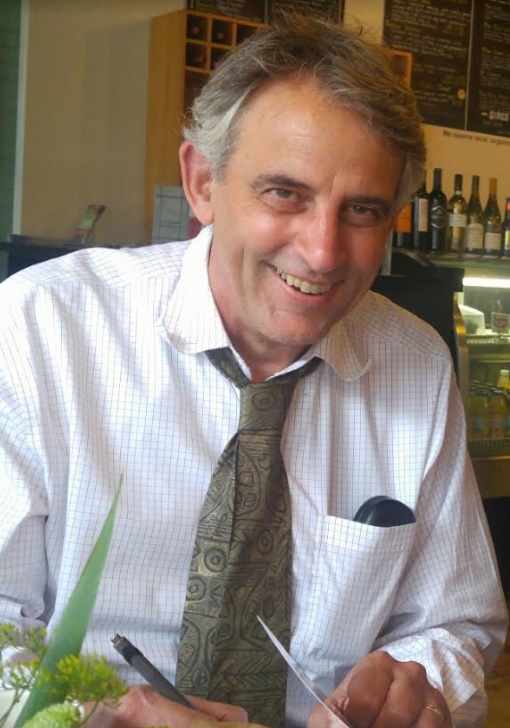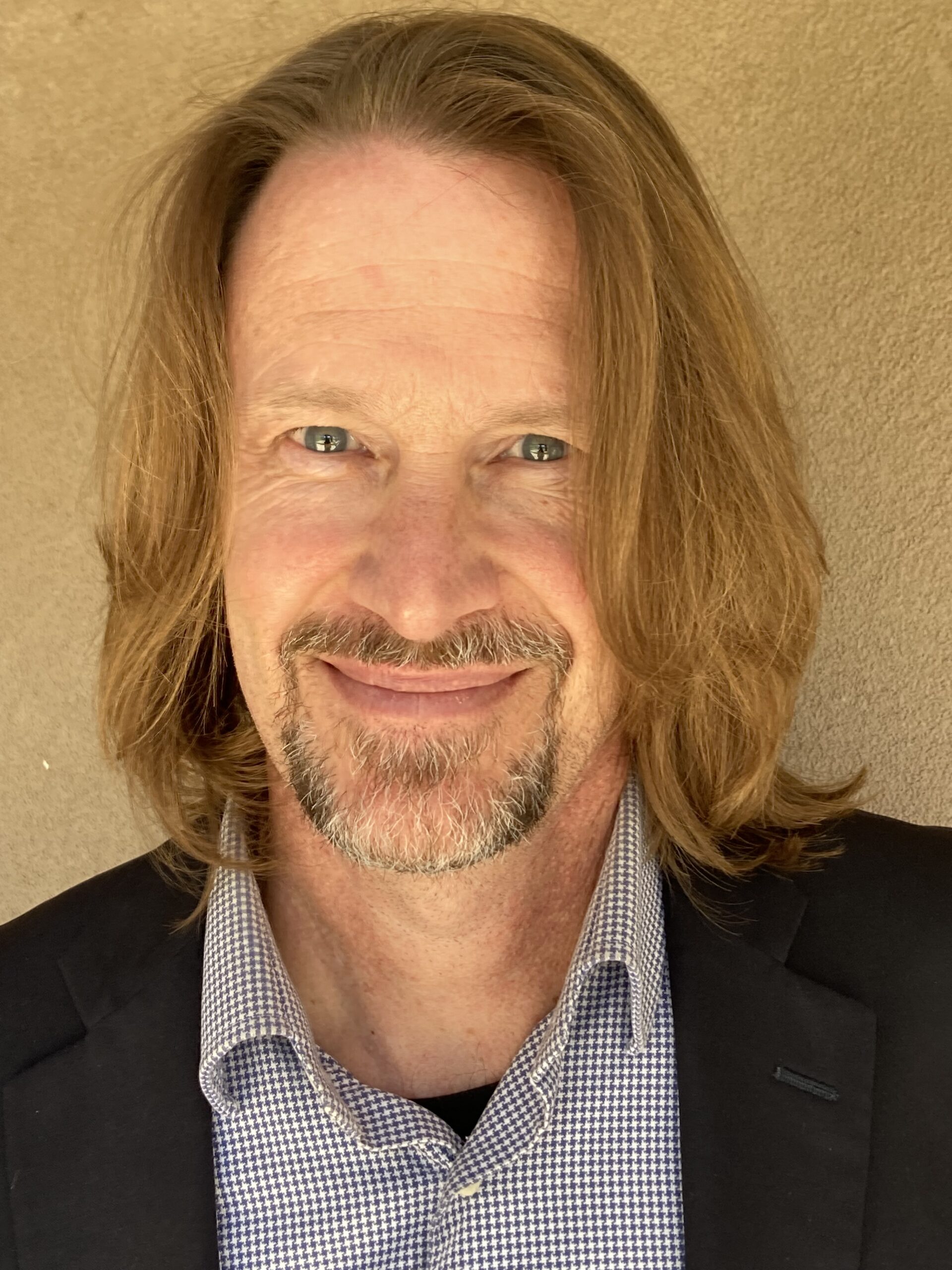Library Lecture Series

Upcoming Lectures

Illuminated! A Closer Look at the Book of Kells and illuminated manuscripts
May 4th 2024 at 12pm in the Castle Keep, presented by Mallory Melton
Registration is FREE with limited space in the Castle Keep.
As it is on Star Wars Day (May the 4th be with you!), folks are welcome to come in costume.
FREE Registration
Past Lectures

“Why Genealogy? | Reframing the Roots Quest”
Presented by Jim Rogers, March 14th from 6-8PM in the Great Hall
It seems every Irish-American has someone in their family researching their genealogy. Despite generational distance and physical separation from Ireland, the draw to connect with one’s Irish roots is strong. Join Jim Rogers, poet and scholar/historian of Irish America, for a thought-provoking program on the whys of Irish genealogy. Jim’s presentation and roundtable discussion will be an exploration of ways to conceive of genealogical research and the motivations for its undertaking.
Free Admission but donations are greatly appreciated
FREE Registration
Event is free but registration is required.
Donations are greatly appreciated.

Dr. Charlotte Headrick
Dramatic Reading Tickets
General Ticket – $10
Student Ticket – $5 (valid ID required upon entry)
All sales final
Two Days – Lecture and Dramatic Reading
January 19 and 20, 2024
**Free Lecture – January 19, 2024 from 5:30pm – 7pm
Dr. Charlotte Headrick: A Career Anchored by Love and Celebration of Irish Theatre
Starting with her undergraduate years at the University of Tennessee and continuing until the present, Dr. Headrick has worked on, directed, and acted in Irish plays. As a scholar, she has published widely including Irish Women Dramatists 1908-2001 (Syracuse University Press, co-editor Eileen Kearney) Her career has been anchored by her love and celebration of Irish Theatre.
**This event is free, however donations are greatly appreciated.
Registration is required for this event, please do so HERE
Dramatic Reading – January 20, 2024 at 5:30pm
Dr. Charlotte Headrick and Dr. Michael Hood read “Chapatti”
“Lonely Dan is a dog lover who bumps into Betty, the proverbial cat lady at the Vet’s office. Their lives are changed forever. This is a touching Irish two-hander filled with many moments of laughter. It is never too late for love.”
![Publicity photo[1]](https://www.azirish.org/wp-content/uploads/2023/02/Publicity-photo1.jpg)
Dr Deaglán Ó Donghaile
Reserve Your Seat Today
This event is free, however donations are greatly appreciated.
Oscar Wilde and Ireland
May 17th, 2023 5:30PM – 7PM
Oscar Wilde was a very political writer, yet many biographers and literary critics continue to overlook his commitment to Irish nationalism, which deeply influenced his literary writings. Wilde’s plays, fiction, and poems often turn to this subject, either directly or indirectly, and there is also much evidence throughout his journalism of his sympathy and support for the Land League and Irish republicanism. In this talk, Dr Deaglán Ó Donghaile will explore Wilde’s support for the cause of Irish independence, which he told a US audience had been ‘so unjustly robbed from us’. Drawing on research conducted at the William Andrews Clark Memorial Library at UCLA, which houses the world’s largest collection of Wilde-related materials, Deaglán will contextualise Oscar Wilde’s literary writings by highlighting the ways in which these works reflected his views on Ireland.
*Doors will open in the Great Hall at 4:30PM on the evening of May 17th.
*There is no cost for admission.
*The Lecture will begin at 5:30PM
*Donations are greatly appreciated
Dr Deaglán Ó Donghaile holds a PhD in English Literature from Trinity College, Dublin. He is Reader in Late Victorian Literature and Culture at Liverpool John Moores University in England, where he is also a member of the Research Institute for Literature and Cultural History. He has held visiting fellowships at the UCLA Clark Library and the Huntington Library, where he has conducted research on their important Wilde-related collections. From 2020-21 he was a British Academy Research Fellow and has previously been an Irish Research Council Postdoctoral Fellow. He is currently writing a political biography of Oscar Wilde entitled Revolutionary Wilde. His study of Wilde’s literary writings, Oscar Wilde and the Radical Politics of the Fin de Siècle, was published by Edinburgh University Press in 2020.
Dr Deaglán Ó Donghaile’s book Oscar Wilde and the Radical Politics of the Fin de Siècle is available: HERE

Thomas Powers Jenney, McClelland Library Executive Director

Dr. Jim Boyle, Archeologist and ICLF Board Trustee
Anarchy in Medieval Ireland?
March 2nd, 2023 7PM – 8:30PM
Several scholars and writers have suggested that Ireland in the medieval period (roughly, 400-1600 A.D.) was an anarchy – a community in which no government exercised a successful claim to have a monopoly on authorizing the legitimate use of violence. For example, in For a New Liberty (pp. 286-290), the libertarian anarchist Murray Rothbard, citing Joseph R. Peden, wrote: “For a thousand years, then, ancient Celtic Ireland had no State or anything like it. As the leading authority on ancient Irish law has written: ‘There was no legislature, no bailiffs, no police, no public enforcement of justice… There was no trace of State-administered justice’.”
The event will take place in the third-floor Castle Keep at the McClelland Library. Doors will open at 6:30 pm. The Library will provide coffee and Irish tea. The Irish Cultural Center will sell more interesting beverages. Parking is available in the lot directly west of the campus.
At our March 2nd discussion, McClelland Library executive director Tom Jenney will discuss the nature of the medieval Irish legal system(s) with Jim Boyle, a trustee of the Irish Cultural Center who has a PhD in medieval Irish archaeology from New York University. Before opening the discussion to audience questions, Tom and Jim will explore several issues:
- What is the definition of “anarchy”?
- Is it useful to draw a bright line between public and private law, or did Irish law fall into a polycentric middle ground of the kind described by Elinor Ostrom?
- Does the term “anarchy” really apply to Ireland in the (“the”) medieval period?
- What did it mean to be a “king” in medieval Ireland?
- How were tuatha formed and administered?
- How did brehon law function?
- If a private system of law enforcement actually operated the way Rothbard described, did it work in a way that most people today would find desirable, compared to other alternatives in the medieval period (or, compared to modern alternatives)?
- Given the eventual conquest of Ireland by the British, was the stateless system of Irish “national” defense effective against foreign invasion and conquest?
Click below for lecture transcript
Background Reading/Sources
Short articles/chapters/podcasts:
Flanagan, Kevin, “When Ireland was Stateless,” Podcast, Portraits of Liberty, May 21, 2021.
Friedman, David D., “Early Irish Law,” in Legal Systems Very Different from Ours.
Peden, Joseph R., “Property Rights in Early Irish Law,” Journal of Libertarian Studies, Vol. 1, No. 2, pp. 81-95, Pergamon Press (1977).
Rothbard, Murray N., For a New Liberty (pp. 286-290)
For serious law and history enthusiasts, Dr. Boyle recommends a textbook: Kelly, Fergus, A Guide to Early Irish Law, Dublin Institute for Advanced Studies (1988). The McClelland Library will acquire a copy of the Kelly book in 2023, but you may need to find one online.
